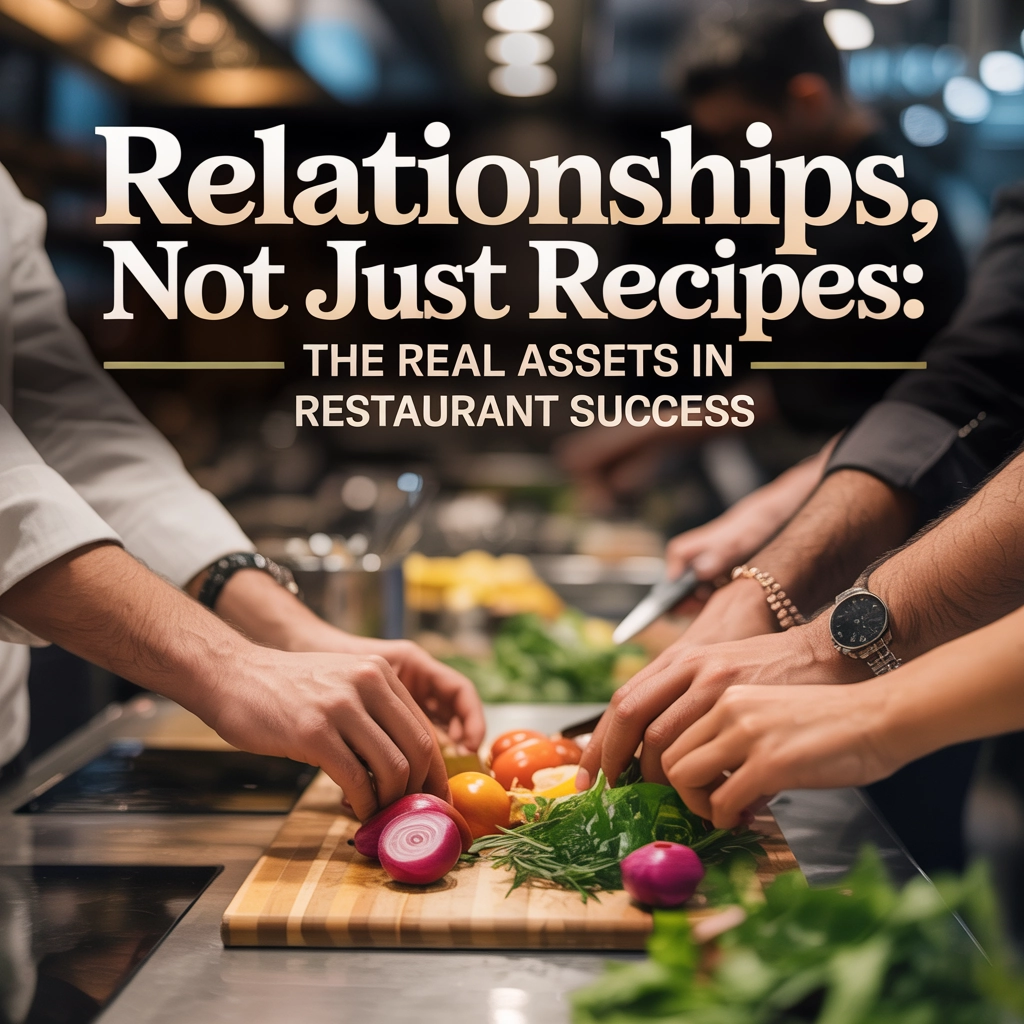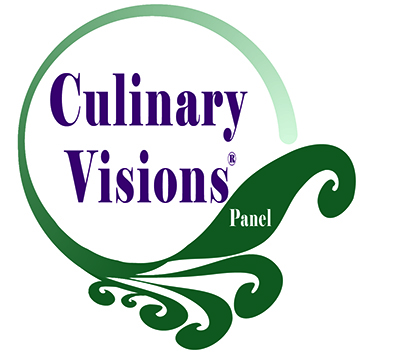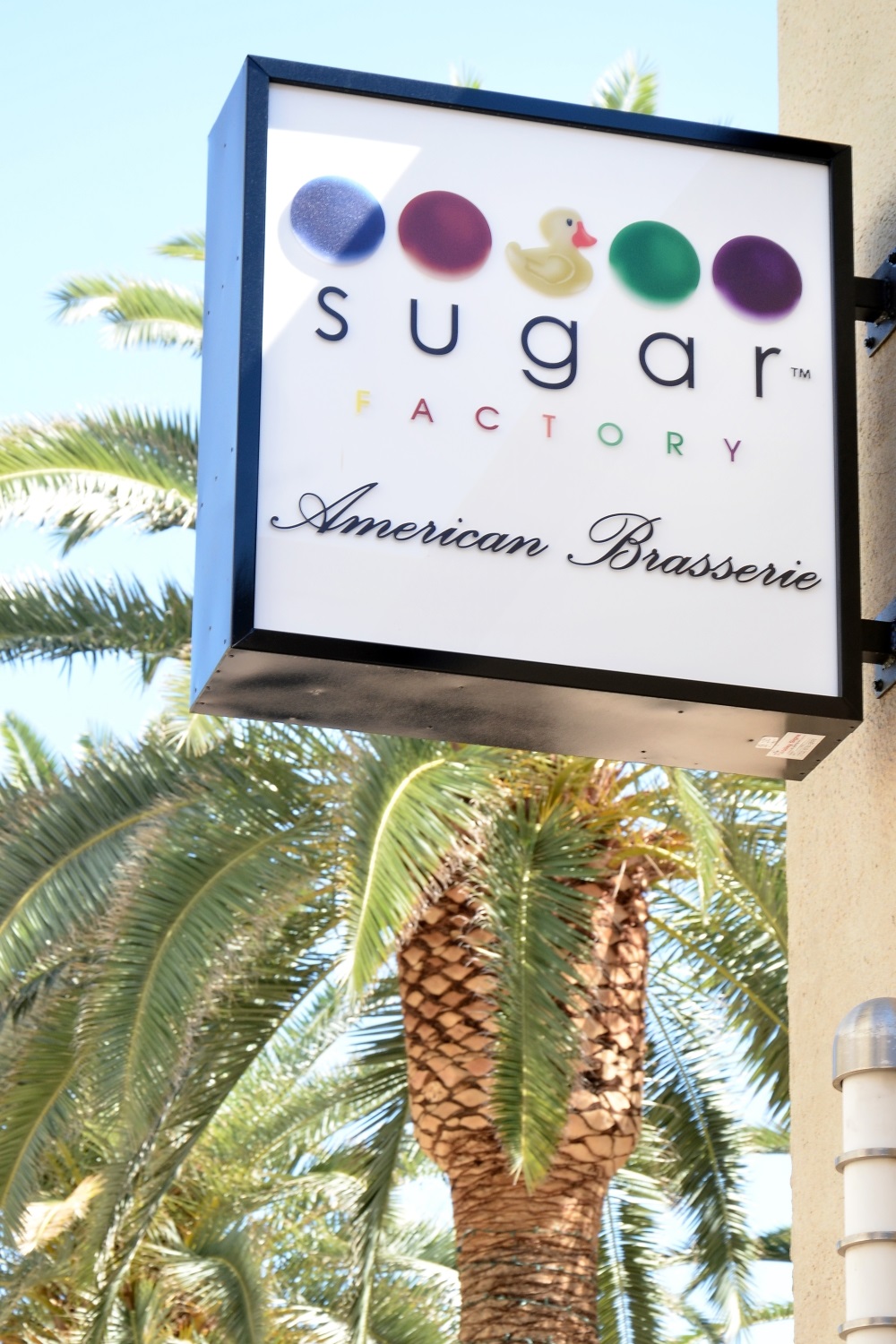The Hidden Currency of Hospitality
Ask most aspiring restaurateurs what they need to succeed, and they’ll likely mention capital, a killer concept, and signature dishes. While these elements are undeniably important, there’s a less tangible but equally critical asset that can make or break your restaurant: relationships.
In my decades in the food and beverage industry, I’ve watched restaurants with mediocre food thrive while those with exceptional cuisine fail. The difference? The strength and breadth of the owner’s professional relationships.
Beyond Your Bank Account: Relationships as Capital
When entrepreneurs list their assets, they typically focus on financial resources. But the most successful restaurant owners recognize that relationships can be more valuable than cash in the bank.
At 18, I met someone running a wholesale frozen food business who supplied my ice cream truck. That relationship taught me more about entrepreneurship than any business course could have. Throughout my career, relationships have continued to be the cornerstone of my success.
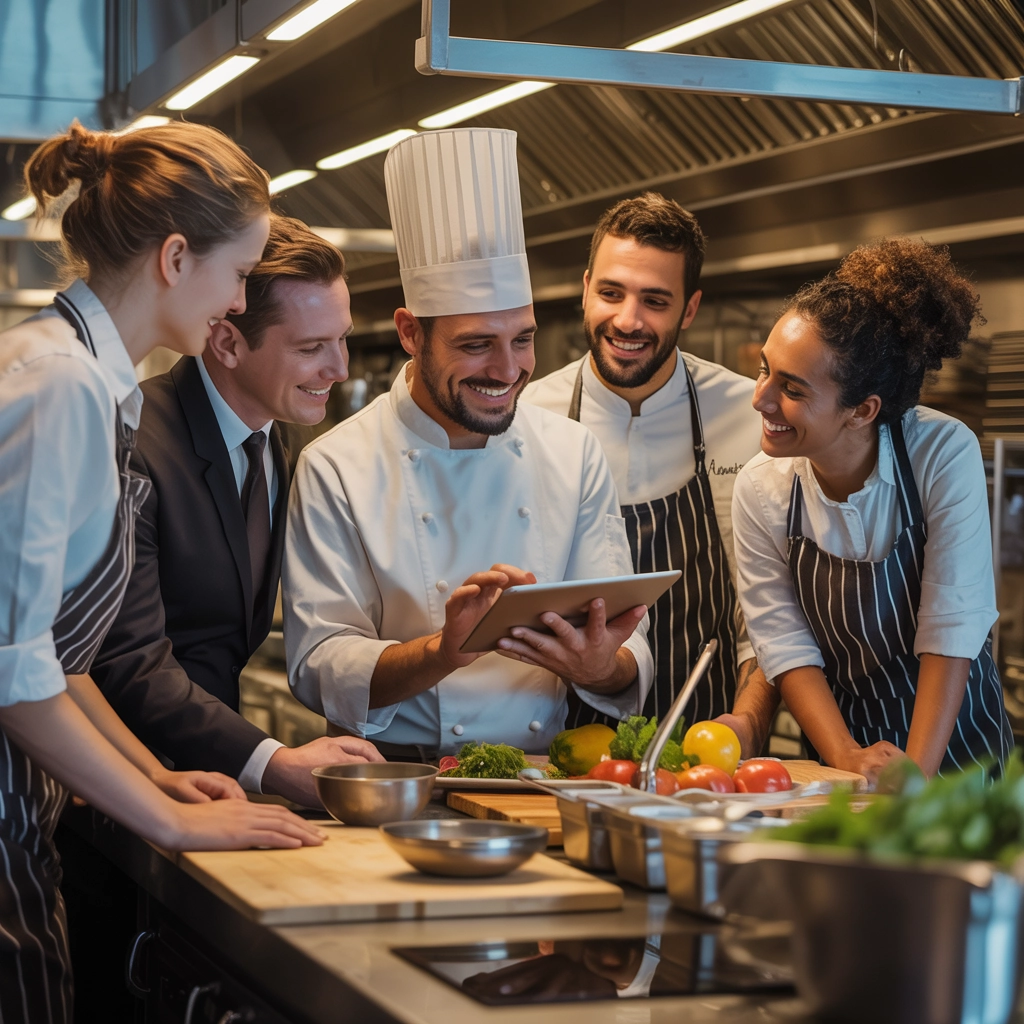
Consider your own network. Do you have:
- Vendors who’ll prioritize your deliveries during shortages?
- Staff who’ll stay loyal during industry-wide labor challenges?
- Media contacts who’ll cover your opening or new menu?
- Industry veterans who can provide guidance when you hit obstacles?
These relationships represent a form of capital that doesn’t appear on balance sheets but dramatically impacts your bottom line.
Building Your Relationship Inventory
Just as you’d create a detailed inventory of your physical assets, it’s essential to catalog your relationship assets:
- Make a comprehensive list of everyone in your network—professionally, personally, and on social media
- Identify relationship gaps where you need to develop connections
- Create a strategy for building meaningful relationships with key industry players
- Assess the value exchange in each relationship (what you can offer vs. what you might need)
Remember, this isn’t about exploitation or seeing what you can extract from others. Successful relationship-building is about creating mutual value and genuine connection.
The Ripple Effect of Industry Relationships
When I launched Food & Beverage Magazine, I assembled an advisory board that included Wolfgang Puck, Bobby Flay, Kerry Simon, and other culinary luminaries. Their involvement wasn’t just decorative—it was transformative.
Wolfgang shared his vendor list and authorized me to use his name when contacting them. Bobby committed to helping build the magazine’s profile. These relationships didn’t just open doors; they created a foundation upon which I could build a sustainable business.
Celebrity Connections: More Than Just Star Power
In today’s experience-driven restaurant landscape, the right personality affiliations can significantly impact your visibility and credibility. While A-list celebrities might be out of reach initially, don’t underestimate the value of:
- Local influencers with dedicated followings
- Former sports stars with regional recognition
- Television personalities from earlier eras who maintain fan bases
- Food bloggers and social media tastemakers
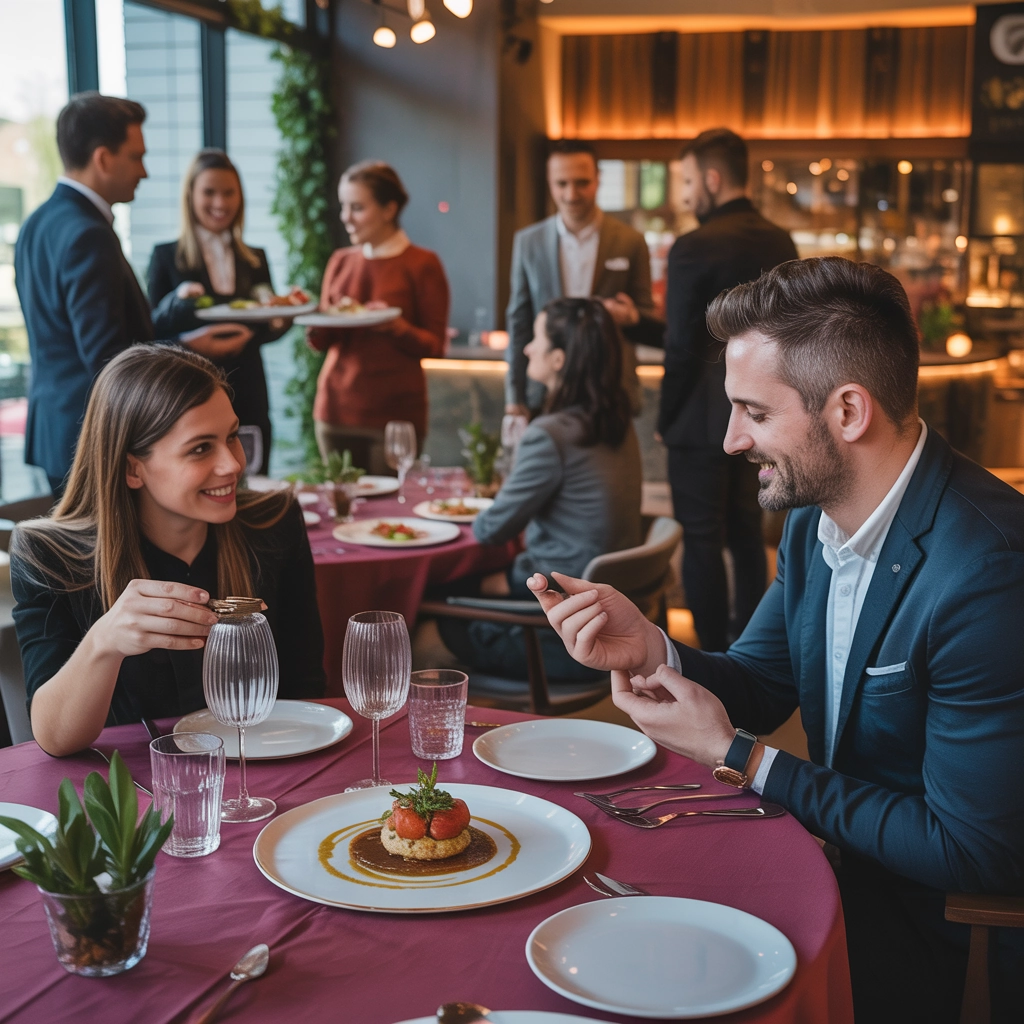
The key is authenticity. Today’s consumers can spot transactional relationships a mile away. Instead, focus on building genuine connections with people who genuinely appreciate your concept and cuisine.
The Mentor Factor: Learning from Industry Veterans
One of my most valuable relationships was with television personality Robin Leach, famous for hosting “Lifestyles of the Rich and Famous.” Robin taught me the importance of these relationships and how to integrate them into my success strategy. His guidance emphasized three principles that I’ve applied throughout my career:
- Always give more than you receive – The most valuable relationships are those where you contribute more than you extract
- Learn from both successes and failures of high-profile individuals
- Never stop learning and building new relationships – The industry is constantly evolving, and your network should too
Having a mentor who’s navigated the complexities of the hospitality industry can save you from costly mistakes and accelerate your learning curve. Their experience becomes your advantage.
Vendor Relationships: Beyond Transactions to Partnerships
The relationships you build with suppliers can directly impact your restaurant’s profitability and operational efficiency. Strong vendor relationships can yield:
- Priority delivery during supply chain disruptions
- Advance notice of price increases
- Flexibility on payment terms during slow periods
- Access to limited or specialty products
- Inside information on industry trends and competitor movements
The best vendor relationships evolve from transactional to collaborative. When vendors see themselves as partners in your success, they become advocates rather than just suppliers.
Media Relationships: Telling Your Story Authentically
In an age of diminishing traditional media and exploding digital platforms, knowing who can amplify your story is invaluable. Building relationships with food writers, bloggers, and content creators before you need coverage ensures you’re not starting from scratch when you have news to share.

Effective media relationships require:
- Understanding each outlet’s audience and focus
- Providing value beyond promotional opportunities
- Respecting deadlines and content needs
- Being responsive and accessible
- Offering exclusives or first looks when appropriate
Rather than treating media as a service you’re entitled to, approach these relationships as mutually beneficial partnerships. The most compelling food stories often emerge from established relationships between restaurateurs and storytellers.
Customer Relationships: From Transaction to Community
While relationships with industry insiders are crucial, your relationships with customers ultimately determine your success. The shift from viewing customers as transactions to seeing them as community members can transform your business model.
Restaurants that foster genuine relationships with guests enjoy:
- Higher retention rates
- More effective word-of-mouth marketing
- Valuable feedback for menu and operational improvements
- Emotional investment in your restaurant’s success
- Forgiveness when inevitable mistakes occur
Technology has created new avenues for customer relationship building, from social media engagement to loyalty programs. However, the most meaningful connections still happen face-to-face, table-side, where authentic hospitality creates lasting impressions.
The Competitive Edge of Relationship Capital
In markets saturated with dining options, your relationships can provide the competitive edge that distinguishes your restaurant. When two establishments offer similar cuisine at comparable price points, the one with stronger relationship networks typically prevails.
Consider how relationships influence:
- Hiring – Access to top talent through industry connections
- Financing – Preferential terms through established banking relationships
- Marketing – Authentic word-of-mouth through community connections
- Innovation – Early access to trends and techniques through peer relationships
- Crisis management – Support systems when challenges arise
The restaurant landscape continues to evolve, with new challenges emerging regularly. Those with robust relationship networks navigate these changes more successfully than those operating in isolation.
Cultivating Meaningful Industry Relationships
Building valuable industry relationships requires intention and strategy. Here are five approaches that have served me well:
- Contribute before you extract – Find ways to support others’ success before asking for anything in return
- Be present – Attend industry events, participate in professional organizations, and show up when it matters
- Listen more than you speak – Understanding others’ challenges and perspectives creates opportunities for meaningful connection
- Follow through – Reliability builds trust, which is the foundation of valuable relationships
- Express genuine appreciation – Acknowledge those who support your journey and celebrate their successes
The Long Game: Relationships as Legacy
As your restaurant matures, the relationships you’ve cultivated become part of your legacy. They represent not just what you’ve built, but how you’ve built it and the lives you’ve impacted along the way.
The most successful restaurateurs I know measure their achievements not just in profit margins and accolades, but in the strength and depth of their professional relationships. These connections often outlast individual restaurants or concepts, creating foundations for future ventures and opportunities.
Conclusion: Inventory Your Relationship Assets Today
As you consider opening a restaurant or evaluate your current operation, take time to inventory your relationship assets. Who’s in your corner? Where are the gaps? How can you strengthen existing connections and forge new ones?
Remember that in the hospitality industry, your net worth is often directly related to your network. Invest in relationships with the same diligence you apply to your menu development or interior design, and you’ll build a foundation for sustainable success.
What relationships have been most valuable in your restaurant journey? Share your experience in the comments below or connect with us on social media to continue the conversation.
Written by Michael Politz, Author of Guide to Restaurant Success: The Proven Process for Starting Any Restaurant Business From Scratch to Success (ISBN: 978-1-119-66896-1), Founder of Food & Beverage Magazine, the leading online magazine and resource in the industry. Designer of the Bluetooth logo and recognized in Entrepreneur Magazine’s “Top 40 Under 40” for founding American Wholesale Floral. Politz is also the founder of the Proof Awards and the CPG Awards and a partner in numerous consumer brands across the food and beverage sector.



